Edinburgh’s new book festival director on why it is keeping Baillie Gifford on board despite boycott threat
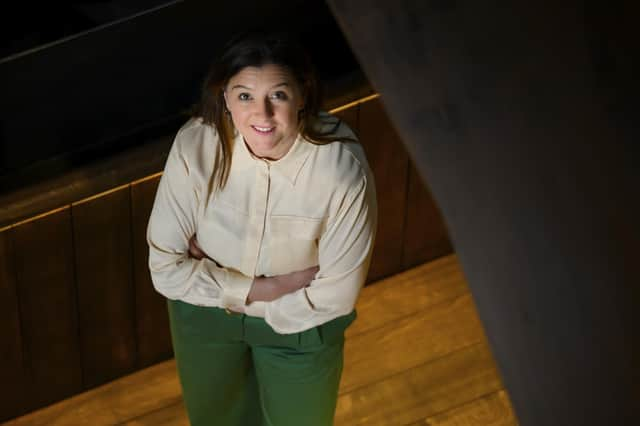

The new director of the Edinburgh International Book Festival has warned Scotland is at risk of losing arts events “every other week” without more public funding for culture and revealed that she would have had to scale back its programme if it had severed links with investment firm Baillie Gifford.
Jenny Niven, who will lead Scotland’s flagship literary event into a new era at an Edinburgh University complex this summer, said the resilience of arts organisations had been “eroded” in recent years due to a lack of financial support.
Advertisement
Hide AdAdvertisement
Hide AdShe was speaking in the aftermath of the cancellation of Glasgow’s Aye Write festival after it was turned down for support by national arts agency, Creative Scotland, which is now only able to approve 30 per cent of funding applications due to a lack of resources.
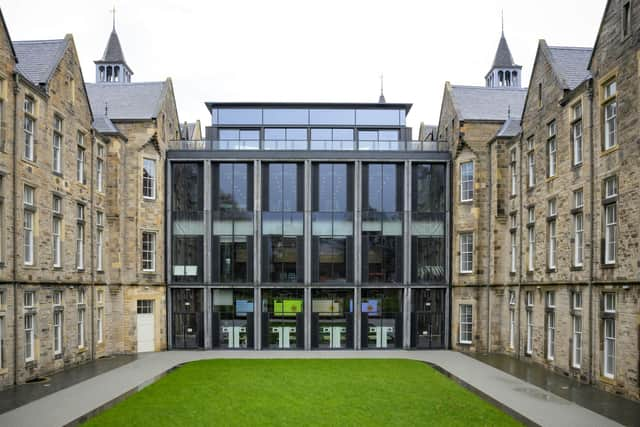

Ms Niven described the current outlook for event organisers as “extremely precarious” due to a “squeeze” on all traditional sources of funding, including corporate sponsorship.
She called for a rethink from politicians about the level of investment in culture to recognise its wide-ranging economic, health and educational benefits.
Describing the public funding landscape as “extremely challenging,” for events and festivals, she pointed out that Scotland was one of the worst-performing countries in Europe when it came to arts spending per head of the population.
She told The Scotsman: “For us, corporate sponsorship, philanthropic support, ticket income and public funding are all part of a mix. If you take any one of those things out of our mix we would cease to operate in the way we currently do. As the news about Aye Wright has shown, it is an extremely precarious mix at the moment. Every one of them is being squeezed.
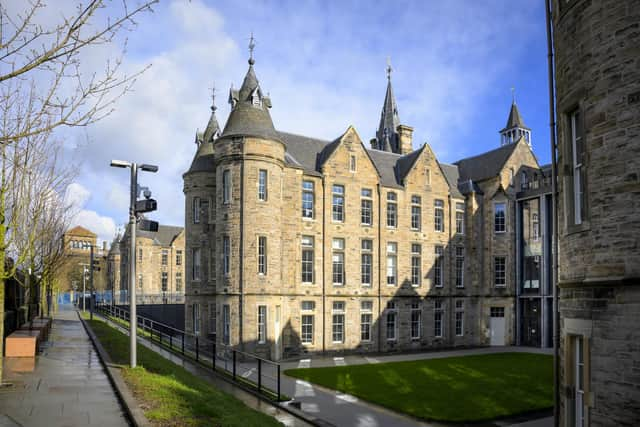

"The public funding landscape is extremely challenging. All the evidence is there about the economic, education and health benefits of arts and culture, but there is still a big gap in the narrative. The political will, the policies and the implementation are not there yet. There’s a gap that we’ve all been trying to close for the longest time.
“We’re still amongst the lowest countries in Europe in terms of how much we spend on our arts and culture. Until we start to value and invest in arts and culture we’re going to see more Aye Writes happening every other week.
Advertisement
Hide AdAdvertisement
Hide Ad“The resilience has been eroded from the sector. In a previous era, you might have been able to ride out a gap here or there. But you are going to see more of this happening because there’s no back pocket any more.”
Edinburgh’s book festival was targeted by climate activists last year after Swedish activist Greta Thunberg pulled out of an appearance at the event over headline sponsor Baillie Gifford's links with the fossil fuels industry.
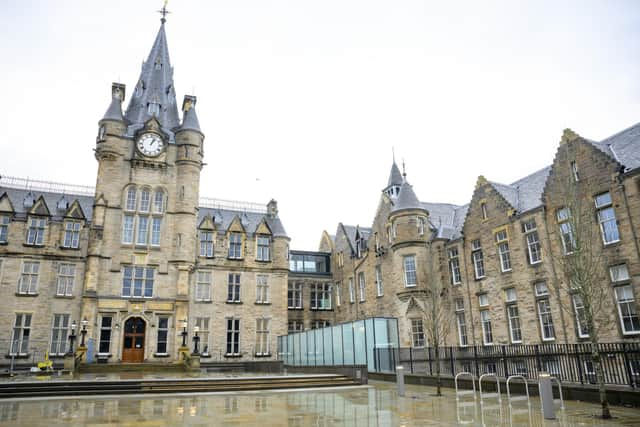

The company is also a backer of the Edinburgh International Festival, the Fringe and the Edinburgh Science Festival, the National Galleries of Scotland, Wigtown Book Festival and Borders Book Festival.
Ms Niven said the book festival, which will feature more than 600 writers this year, had decided to keep the company on board after a “rigorous” review of its ethical fundraising policies, and extensive discussions with its board and staff.
Despite threats of a boycott, it is understood only a handful of writers have turned down invitations to appear at this year’s event, which will be held at the Edinburgh Futures Institute, a new learning, research and innovation hub created in the former infirmary building on Lauriston Place.
Ms Niven said: “The issues people were raising last year were around climate change and the environment.
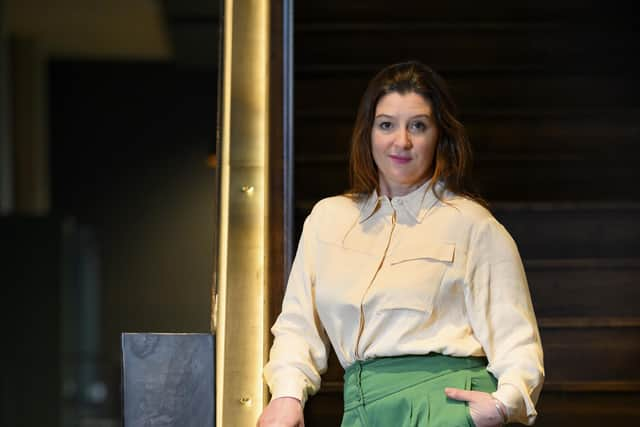

"We take our responsibilities extremely seriously. Part of our move from Charlotte Square was because it was becoming completely unsustainable to run a festival there.
Advertisement
Hide AdAdvertisement
Hide AdThe festival will be much more sustainable now. We’ll need a fraction of the kit that we had to put into Charlotte Square, the new building is completely environmentally friendly, there will be no single-use plastic and we’re doing a travel pilot this year asking some of our European writers to travel overland. We already encourage writers who are coming from other parts of the UK to travel by train.
“I think we’re in quite a progressive space in terms of our environmental footprint. I don’t think we’re a million miles away from what the protesters were calling for last year. We’re all pulling in the same direction, but might have differing views on how to get there.
“We’ll continue to make as many changes as we can and we will work with funders who are also making changes. One of the things that’s maybe changed since last summer is that people have done their own research and learned more about the subject. Hopefully we can continue to provide a platform which allows people to learn more, but also raise things they don't agree with.
"We expect that there probably will be campaigners on site this year and that’s fine. We want people to be able to express an opinion. We can’t put on the programme we want to put on and then exclude them."Ms Niven said she wanted to ensure that “nuanced” conversations about climate change, the environment, internationalism, economics and politics were held at the event in future, but insisted key elements of its programme would “simply not exist” without Baillie Gifford’s backing.
She added: “We’ve been sponsored by Baillie Gifford for the last 20 years. We wouldn’t be able to do what we do without them. They are the main sponsor of our schools programme. Thousands of children get free tickets for the festival, free transport and free books every year. That part of our programme is entirely funded by Baillie Gifford.
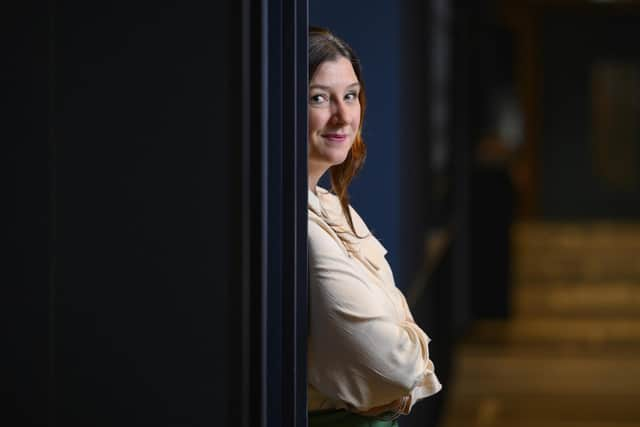

"It’s our view that it’s really important that all sections of society value the arts and culture, and also play a part in it because it benefits all of society.
“Since last summer, we’ve spent an enormous amount of time reviewing our ethical fundraising policies and all of our processes. We’ve had a really rigorous discussion with the board and the team. We’re really confident that the sponsors we have at the moment are the right ones to be working with.
Advertisement
Hide AdAdvertisement
Hide Ad"We’ve been having really open and transparent conversations with writers. They are curious and inquisitive – that’s what we love about them. We've got a programme of 600-odd writers who are ready to come to the festival this year.
"I think we’re now at a point where a whole lot of issues in society feel really difficult and intractable.
"We want to look at who is going to give us some new ideas and who we need to listen to in a different way on some really difficult questions.
“Things are not straightforward. Our job is to provide a platform where you can have properly nuanced conversations about things and really listen to people who don’t necessarily hold the same opinions or set of beliefs that you do.”
Comments
Want to join the conversation? Please or to comment on this article.
